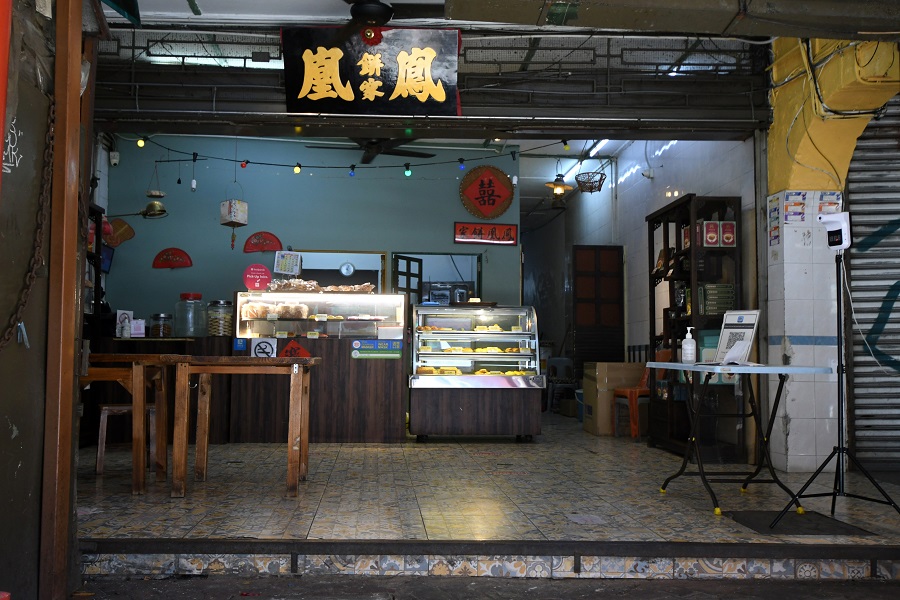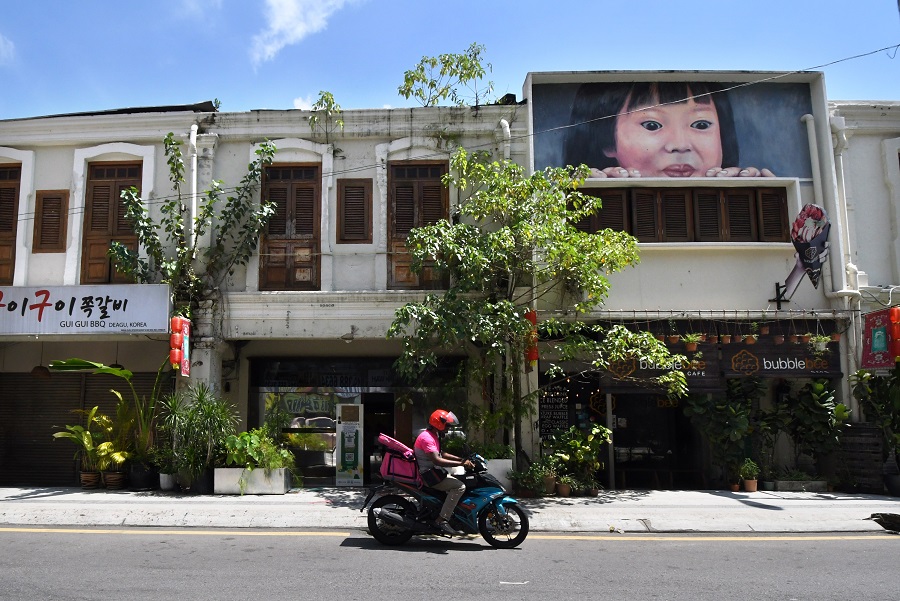Fung Wong Biscuit’s move to new shop halted by lockdown

KUALA LUMPUR (July 14): The fourth generation owner of Fung Wong biscuit shop in Petaling Street, Melvin Chan, found himself in a limbo when the tenancy of the old shop expired on July 1, 2021, and he was unable to move to his new shop on time due to the extended lockdown which began on June 1.
The 112-year-old traditional Chinese biscuit shop was supposed to leave its old premises, in which they started operating in 1970, to the new outlet in Jalan Sultan before the tenancy ended.
“The prolonged movement control order (MCO) has affected the progress of the renovation works in our new shop. I still need to pay the monthly rental for the new shop although I can’t start my business yet,” Chan told EdgeProp.my via a phone interview.
On top of that, the movers were also not allowed to come in for help, making it harder for Chan to shift the machinery and heavy furniture alone.

The landlord of the old shop, thankfully, was kind enough to let Fung Wong continue its business until it was able to shift to the new store, but he wasn’t sure how long this could last.
“Worst case scenario, I may go back to my grandfather’s way – to sell biscuits at the kaki lima (sidewalk) until the new shop can start operation,” he said.
Specialising in Chinese pastries and wedding biscuits, Fung Wong Biscuit was originally started in 1909 by Chan’s great-grandfather in Guangdong province, China. It was a small business where he sold baked goods to his relatives and friends. Fung Wong Biscuit then started its operation in Malaysia when Chan’s father and grandfather emigrated from China in 1946.
The shop, which relies heavily on tourists and walk-in business, has found itself struggling in making the same sales as before. The decision to move was made last year for better cash flow as the new shop has lower rental.
Since the pandemic hit Malaysia in March 2020 and with the implementation of a number MCOs last year, Fung Wong has seen its revenue decline by 90% compared to pre-pandemic times.
The full lockdown has worsened the situation, and Chan has gradually moved the sales online and started making delivery on his own to save cost while keeping the business running. However, the delivery sales only achieve up to around 40% of the sales he made before the pandemic times.
To better control the cost, he only produces based on customers’ orders and maybe some extras for walk-in customers.
The century-old biscuit shop is one of the casualties at the historic Petaling Street, said Chan. Some business owners have no choice but to end their businesses due to cash flow problems or to cut losses due to future uncertainties.
Growing up in Petaling Street, Chan noted that he had never seen Petaling Street so quiet before, a complete detachment from its typical image of being a lively street filled with robust activities.
“The only shops that are open are F&Bs. Even so, only limited F&Bs are open compared to before the Full MCO. There aren't many visitors. The people who come are mostly delivery drivers who pick up the orders,” he lamented.
Yet, despite the poor market conditions, Chan decided to continue the business even during the lockdown period.
“If you don’t open, you will make losses. Even if you do open, you will still make losses. But at least I will make some money even though it is just a small amount. At least I can still pay my workers,” he shared.
However, Chan stays hopeful for the future when the country achieves herd immunity and heads on to recovery.
“During the slow period, I have time to sit down and think about the future plans of the new Fung Wong, which will be serving traditional Chinese biscuits in a modern cafe setting, coupled with Instagrammable elements to attract young customers and also introduce the history of Fung Wong to them,” he enthused.
Get the latest news @ www.EdgeProp.my
Subscribe to our Telegram channel for the latest stories and updates
Never miss out
Sign up to get breaking news, unique insights, event invites and more from EdgeProp.
Latest publications
Malaysia's Most
Loved Property App
The only property app you need. More than 200,000 sale/rent listings and daily property news.


